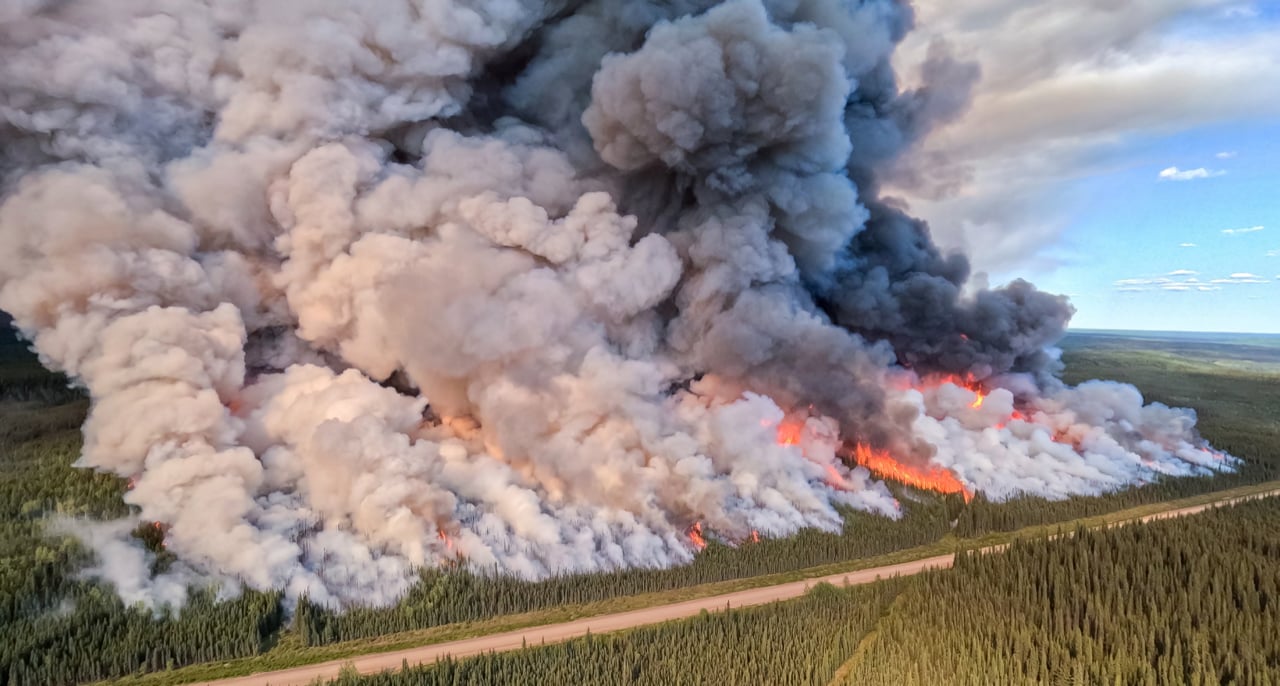BC, Yukon Fire Seasons Rapidly Growing Longer; 1.8 More Days Added Each Year Between 2001 And 2020
 The 2023 Donnie Creek fire, in BC’s northeast, was the most destructive in the province’s history. It’s an example of trends identified in a recent study by the University of British Columbia, which show northern regions are leading an increase in more extreme wildfire days every year. Photo via BC Wildfire Service.
The 2023 Donnie Creek fire, in BC’s northeast, was the most destructive in the province’s history. It’s an example of trends identified in a recent study by the University of British Columbia, which show northern regions are leading an increase in more extreme wildfire days every year. Photo via BC Wildfire Service.
Canada’s northern regions have seen increasingly longer wildfire seasons in recent decades, with the number of days conducive to severe burning rising most steeply in B.C.’s far north, according to a recent study. The findings, published last week in Science, are from a University of British Columbia study led by Weiwei Wang, a research scientist with Natural Resources Canada’s Northern Forestry Centre. Wang’s research used data and modelling in 10 ecozones across Canada to determine the driving forces behind the ecological impact of a wildfire, also known as “burn severity.” Weather, fuel and topography were used as predictors of burn severity, according to the report.
The study examined wildfire severity over a 40-year period, splitting the time frame into two periods, from 1981 to 2000 and from 2001 to 2020. “The year 2000 has been identified as a global turning point in climate change, with increasingly extreme weather events having been observed since then,” the researchers wrote. The researchers found that dry conditions were the main cause of increased wildfire severity in Canada and that northern regions were most influenced by the effects of climate change. While summer months were more prone to severe burning, they found that the rising number of additional burning days occurred mostly in the spring and fall.
EDIT
One of the ecozones studied, the “boreal cordillera,” which covers northern B.C. and southern Yukon, showed the greatest increase in high burn severity days over the latter period, with 1.8 days added each year between 2001 and 2020. The boreal cordillera was closely followed by two neighbouring ecozones covering northern Yukon and the western Northwest Territories, which saw an increase of 1.5 days every year over the same period.
In 2023, B.C. experienced its most destructive wildfire season on record. The Donnie Creek fire in the province’s northeast burned over 6,000 square kilometres to become the largest in B.C.’s history. It wasn’t declared out until August 2024. BC Wildfire Service blamed the record-breaking blaze on prolonged drought and “highly volatile boreal spruce fuel types.” That was reflected in the recent report’s findings. “The 2023 estimates demonstrate widespread escalation in high burn severity days compared with the past 40 years,” according to the recent study. “In this extreme fire year, more severe conditions were found in the northwest and northeast areas [of Canada], corresponding to the record-breaking large fires that occurred in British Columbia, Alberta, the Northwest Territories and Quebec.”
EDIT
https://thetyee.ca/News/2025/01/07/Fire-Weather-Hitting-North-Hardest/
